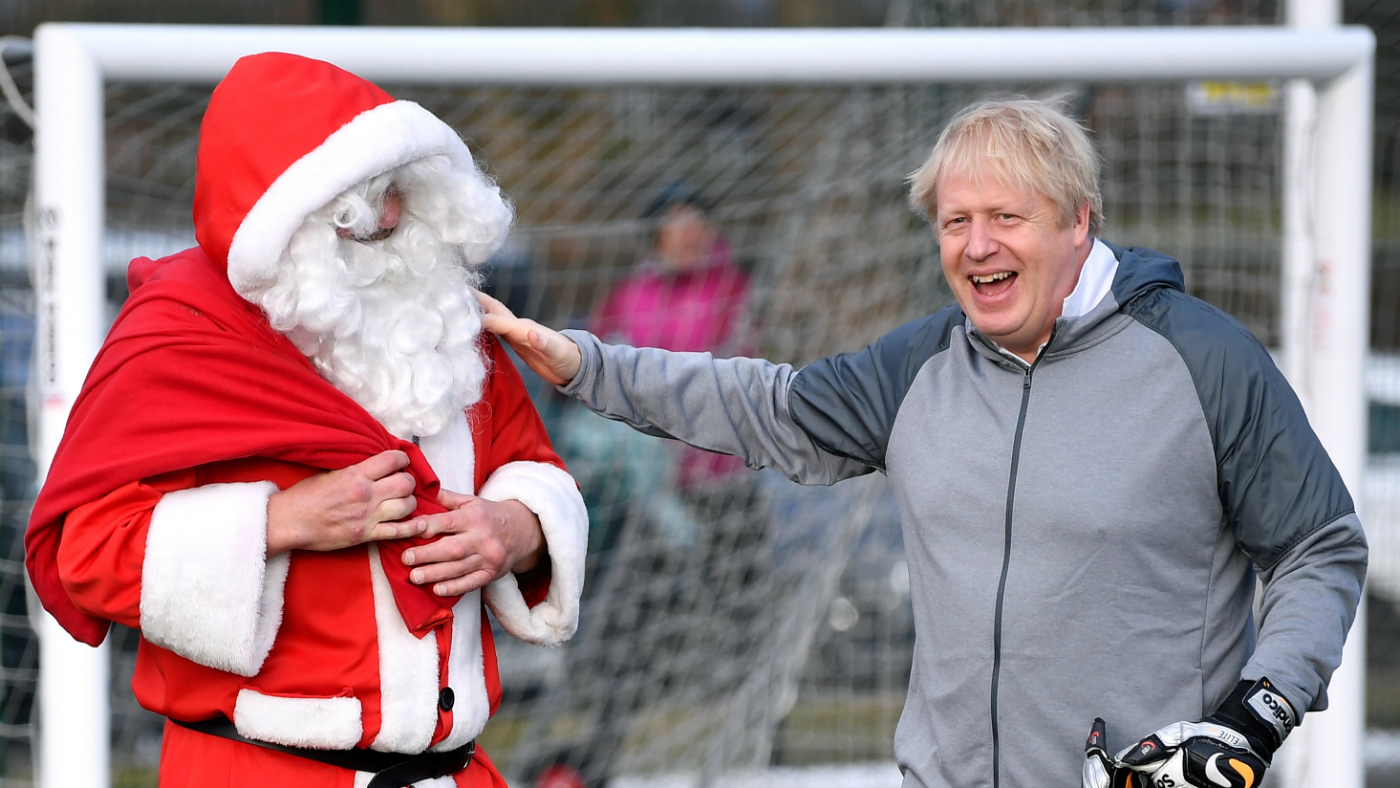Why everyone’s talking about a ‘Covid Christmas’
Boris Johnson fails to rule out potential festive disruptions after introducing new limit on social gatherings

A free daily email with the biggest news stories of the day – and the best features from TheWeek.com
You are now subscribed
Your newsletter sign-up was successful
The coronavirus pandemic has left Brits with little to celebrate this year, and now Christmas may be “cancelled” too, after Downing Street confirmed a blanket ban on social gatherings of more than six people.
Announcing the new rule yesterday, Boris Johnson said he was “still hopeful” that “some aspects” of life could be back to normal by the festive season through a mass testing regime.
But the prime minister added the caveat that it is “too early to say” for sure. So how long might the ban remain in place - and will families and friends be able to gather together this Christmas?
The Week
Escape your echo chamber. Get the facts behind the news, plus analysis from multiple perspectives.

Sign up for The Week's Free Newsletters
From our morning news briefing to a weekly Good News Newsletter, get the best of The Week delivered directly to your inbox.
From our morning news briefing to a weekly Good News Newsletter, get the best of The Week delivered directly to your inbox.
Why is the ban being introduced?
The decision to limit social gatherings across England from Monday follows a steep spike in Covid cases in the UK, with 2,659 new infections recorded on Wednesday. On Sunday, the total was 2,988, the highest daily tally since 22 May.
In a bid to limit the spread of the virus, larger groups will no longer be allowed to meet, both indoors and outdoors, with the exceptions of schools, workplaces, “Covid-secure weddings”, funerals and organised team sports.
Earlier this week, Professor John Edmunds, a member of the government’s Scientific Advisory Group for Emergencies (Sage), had warned that the UK was entering a “risky period”.
A free daily email with the biggest news stories of the day – and the best features from TheWeek.com
In an interview with Robert Peston for ITV News, Edmunds said: “The epidemic continues to increase and then we have Christmas. And that is very difficult. What is Christmas? Well, it’s meeting with your family very close. Restaurants and pubs and stuff like that.
“It’s all high risk. And it’s all indoors.”
So is Christmas at risk?
Johnson has refused to speculate about when the ban might be lifted, leading to fears that Britain could face what The Telegraph dubs a “Covid Christmas”.
After confirming the new rule at the government’s daily briefing on Wednesday, the PM said that he wanted to implement a new widespread testing system that may make it “possible even for challenging sectors like theatres to have life much closer to normal before Christmas”.
But Health Secretary Matt Hancock told BBC Radio 1′s Newsbeat programme that the ban on large gatherings would be in place “for the foreseeable future” and possibly beyond the festive season.
“I’d like to be able to relax them before Christmas, obviously,” Hancock said. But when asked whether families would be able to celebrate together during the winter break, he responded: “Not necessarily.”
Experts are even less optimistic.
Hinting that, as HuffPost puts it, coronavirus may prove to be “the Grinch that stole Christmas”, England′s Chief Medical Officer Professor Chris Whitty said the new rule would probably be in place for “the next block of time”, adding that “it is very unlikely to be over in just two or three weeks”.
Sally Bloomfield, honorary professor at the London School of Hygiene and Tropical Medicine, predicted that “Christmas will not be the same – of that I am absolutely sure”.
And government insiders say that the restrictions could be in place until next spring, according to HuffPost.
What would the festive season look like under Covid?
If the new rule on gatherings is still in place over Christmas, people across the UK will face a “festive season unlike any other”, says The Telegraph.
But while big families may be unable to meet on the big day, the most noticeable changes are likely to be in the run-up, according to Dr Julian Tang, a consultant virologist and honorary associate professor at the University of Leicester.
“In the UK – unlike in Asia ,where everything is open and people go out a lot – Christmas is mostly a home and family affair, almost like a voluntary, self-imposed lockdown for a few days,” he says.
“However, the main risk is likely the pre-Christmas shopping days and the festive spirit that this creates. Shopping online for Christmas is safer but much less atmospheric and festive, so may not be so popular.”
Infectious diseases expert Paul Hunter, a professor of medicine at the University of East Anglia, agrees that the run-up to Christmas may look very different this year.
“The big office work parties and things like that almost certainly won’t be happening in my view,” he told HuffPost.
And “the typical school nativity play probably won’t happen” either, he adds, as schools “won’t be getting loads of parents into a hall to watch their children pretend to be shepherds”.